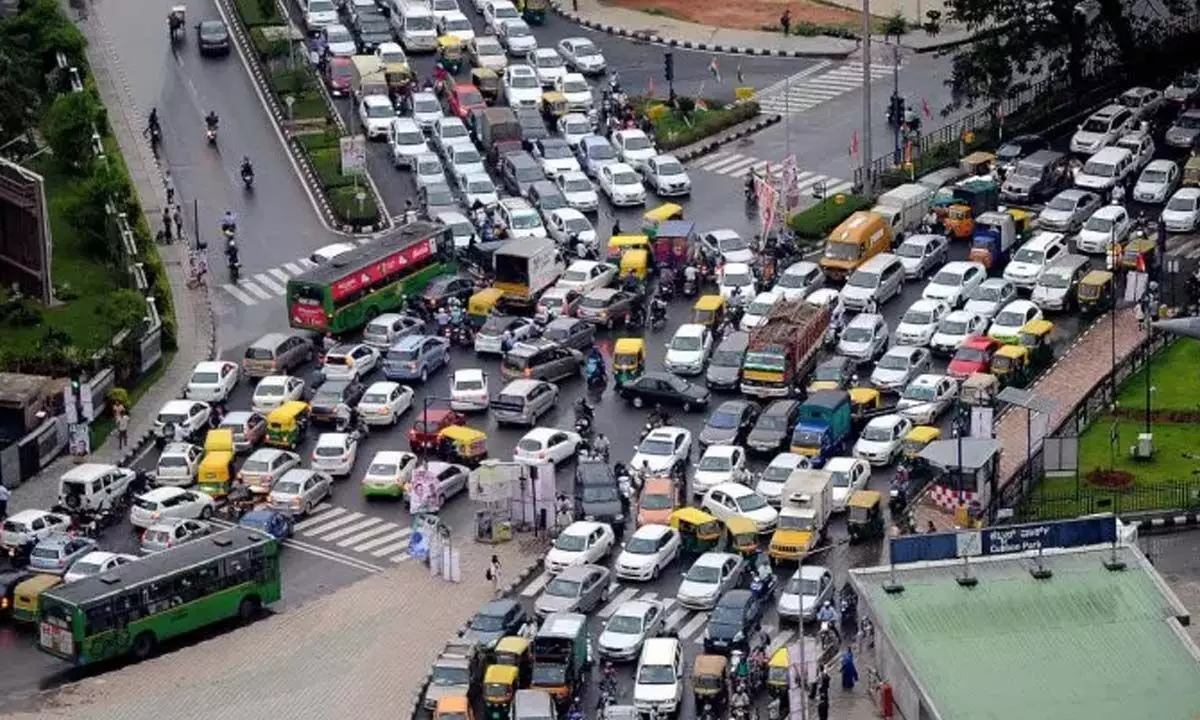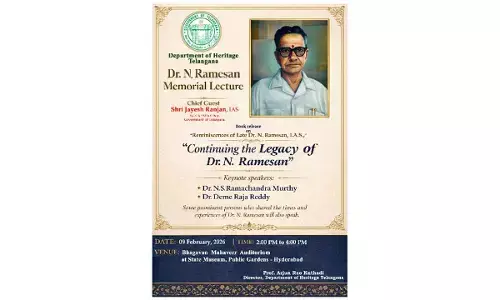Traffic congestion in Bengaluru, next only to London

Traffic congestion in Bengaluru, next only to London
In 2022, traffic congestion took up 134 hours of the total 260 hours of travel time spent on average travelling 10 kilometres. Moreover, the city released 1,009 kg of carbon dioxide into the atmosphere in 2022, 275 kg of which were caused by a 10-kilometer stretch of standstill traffic
Bengaluru: India's Silicon Valley, Bengaluru, has been named one of the world's congested cities by location tech company Tom Tom, which evaluates traffic congestion in cities across the world. According to the Tom Tom traffic index, the capital of Karnataka has secured the second spot, behind only London, with an increased travel time of roughly 29 minutes and 10 seconds to drive a distance of 10 kilometres.
For the same distance, London recorded a travel time of 36 minutes and 20 seconds. The list of India's traffic-congested cities is led by Bengaluru, with Pune coming in at number six, New Delhi at number 34, and Mumbai at number six (47). TomTom Traffic Index provides free access to city-by-city information and ranks cities around the world based on their average journey time.
The results show that Bengaluru's commute time increased by 40 seconds in 2021. On Saturday, October 15, 2022, it took 33 minutes and 50 seconds to travel 10 kilometres through Bengaluru, making it the worst day to travel through the city. The city was named the world's most congested city in terms of traffic in 2019.
However, according to Bengaluru Special Commissioner (traffic) M. A. Saleem, in 2023 the average time for a distance of 10 km in the city centre was cut in half to 14 minutes. "Even though the weekend causes a lot of incoming traffic on Fridays, we have made particular measures for the same. On Fridays, outgoing traffic will receive more preference when it comes to receiving a green signal than incoming traffic," the officer explained. The study also showed that in 2022, traffic congestion took up 134 hours of the total 260 hours of travel time spent on average travelling 10 kilometres. Moreover, the city released 1,009 kg of carbon dioxide into the atmosphere in 2022, 275 kg of which were caused by a 10-kilometer stretch of standstill traffic.
In reality, the statistics indicated that, due to the intensity of traffic congestion, Friday is the greatest day of the week to avoid driving. It takes 37 minutes and 20 seconds to drive 10 kilometres on Fridays between 6 and 7 p.m., according to an average travel time for the whole workweek. As the day goes on from morning to evening, the average amount of time spent in traffic grows by an hour every time. Around 8 am and 6 evening, it typically takes 25 minutes and 37 minutes, respectively, to travel 10 km. But, according to the data, the busiest days of the week for traffic congestion are Fridays and Saturdays.
Also, the index claimed that working from home on Fridays may save annual travel by 52 hours and carbon dioxide emissions by 201 kg. Also, working from home on Fridays, Mondays, and Thursdays can save annual transportation by 157 hours and carbon dioxide emissions by 603 kg.
According to the data, a person makes a 10-km trip in their automobile for an additional 15 minutes in the morning and 20 minutes in the evening during rush hour. In total, commuters were stuck in traffic for 134 hours in 2022, which is equivalent to 5 days and 14 hours.
The actual average speed during rush hour for the same distance was 19 km/h in the morning and 16 km/h in the evening. While the ideal journey time for a 10-kilometer distance is 32 minutes, Bengaluru's entire rush hour travel time was measured at 1 hour and 8 minutes.















